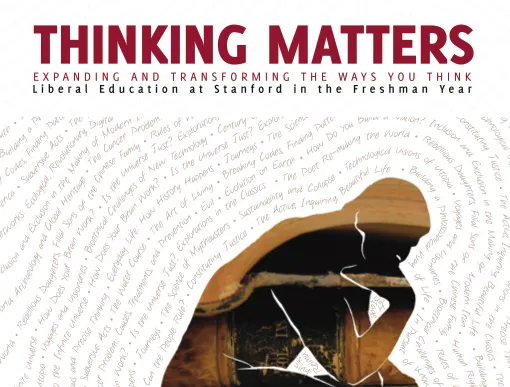Table of Contents
Recently I found myself holding a conversation about Stanford and life in general over dinner with a friend. Where the conversation took a turn for the worse was when he started discussing how much better life could be if he went to another school where he “could have his 4.0” average doing less work and probably be overall less stressed and just as successful in his latter life. At first he seemed to have a point, but as I have thought more and more about it I’ve begun to see things differently.
A few weeks ago, Yale classics professor Donald Kagan delivered a farewell address that hit home for me and reminded me why I studied classics here at Stanford. The article summarized Kagan as claiming that America’s colleges “are failing students and hurting American democracy.” His own words can be applied to almost any American college campus: “I find a kind of cultural void, an ignorance of the past, a sense of rootlessness and aimlessness.” These were the exact things I wished to avoid when I fell in love with the study of antiquity. But what is worse than these problems Professor Kagan points out, is our all-consuming desire for “success” which we typically measure in terms of monetary gain. “Does it matter? How am I supposed to be an I-banker if I don’t have a 4.0?” was the reply my friend gave me when I asked if he felt that he had learned anything just by virtue of being surrounded by fellow students equally as driven as he.
This drives at the exact root of the problem which Kagan addresses: today, universities educate programmers, bankers, political scientists, economists, and sundry other individuals who fit into nice professional niches. The problem is universities no longer educate citizens. Kagan emphasizes the point that democracy requires “free, autonomous and self-reliant citizens” to function properly and that “these kinds of citizens aren’t born—they need to be educated.” This type of education doesn’t come from learning how to function in some limited professional niche. Nor should we expect such an education to make us rich or make our life any easier. Instead the point is that “The essence of liberty, which is at the root of a liberal education, is that meaningful freedom means that you have choices to make.” The point is to make those choices with “an informed understanding of the traditions and institutions of our Western civilization and of our country.”
And when we are sitting around at an average dinner fantasizing about how much better life would be with a 4.0 from an “easier” school, it is clear that somewhere along the line the education system has failed us. Somewhere we have forgotten that the goal of an education is to be an informed citizen, not the highest paid banker on Wall Street.





